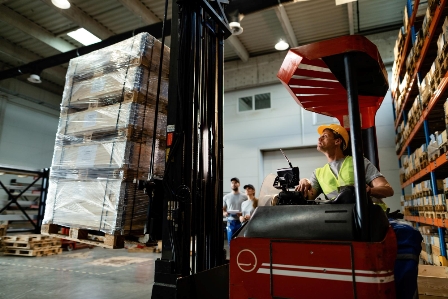In the competitive world of logistics and warehousing, efficiency is everything. From the moment goods arrive to the second they’re dispatched, every minute counts. One of the most overlooked yet critical elements of warehouse productivity is your material handling equipment—particularly forklifts. While many businesses focus on staffing and software to improve performance, the impact of forklift sales on warehouse efficiency is substantial and deserves a closer look.
Whether you’re expanding your fleet or upgrading old models, investing in the right forklifts can drastically improve how smoothly your operation runs.
Why Forklift Selection Matters
When a warehouse grows or changes its layout, the type and quantity of forklifts required may also need to evolve. Buying a forklift isn’t just about choosing the most affordable option—it’s about selecting machines that fit your specific operational needs. The wrong choice can lead to bottlenecks, slower task completion, higher fuel or electricity consumption, and unnecessary maintenance issues.
Modern forklifts come with a range of features designed to boost productivity and safety. From electric models ideal for indoor environments to heavy-duty diesel units built for outdoor yards, matching the right forklift to the right task ensures optimal efficiency. This is where professional guidance from an experienced forklift sales team becomes invaluable.
Time Savings Through Better Equipment
Upgrading to newer forklift models can lead to significant time savings on the warehouse floor. Newer units typically have faster lifting and travel speeds, smoother controls, and better ergonomics for operators. These improvements translate into quicker loading and unloading times, faster inventory movement, and less fatigue for drivers—all of which help your team get more done in less time.
In contrast, outdated or mismatched forklifts can become a drag on performance. Frequent breakdowns, slower operations, and uncomfortable handling lead to wasted hours and frustrated staff. If a forklift is out of action during peak hours, it can cripple productivity for the entire day.
Reducing Downtime and Maintenance Costs
Another major way forklift sales influence efficiency is through reduced downtime. Purchasing a new forklift usually means fewer mechanical issues, especially when compared to older or second-hand machines that might have hidden wear and tear. New forklifts come with warranties and are supported by reliable servicing schedules, which means less guesswork and fewer disruptions.
A well-maintained machine not only lasts longer but also maintains peak performance over time. Choosing to invest in new or high-quality used forklifts from a reputable dealer ensures your team is always equipped to handle the workload, without the frustration of last-minute breakdowns.
Enhanced Safety Equals Greater Productivity
Workplace safety and productivity go hand in hand. Forklift accidents can cause serious injuries, damage inventory, and even lead to costly legal implications. Modern forklifts often come with advanced safety features such as anti-roll technology, better visibility, improved braking systems, and driver alerts. These features not only protect your staff but also help prevent operational delays caused by accidents or near-misses.
Furthermore, when your operators feel safe and confident using reliable equipment, they’re more focused and efficient in their roles. Safer environments foster more consistent work, reducing disruptions and increasing output over time.
The ROI of Strategic Forklift Investment
It’s natural to consider the upfront cost of new equipment, but the return on investment (ROI) from improved productivity, safety, and reduced downtime often outweighs the initial spend. Forklifts are assets, and selecting the right models can bring long-term financial benefits. Whether it’s through reduced labour hours, fewer repairs, or increased throughput, the impact on your bottom line is measurable.
If you’re unsure where to begin, it’s worth exploring options from trusted providers who understand your business needs. For example, West Coast Forklifts offers expert advice, sales, and after-sales support tailored to help businesses find the right fit for their operations. Their solutions are designed to meet both short- and long-term performance goals.
Customisation for Specific Tasks
Another benefit of engaging with a professional forklift sales team is the ability to customise your purchase. Need attachments for specialised lifting, or compact models for narrow aisles? A reputable dealer can guide you toward machines tailored to your warehouse’s layout and function. This level of customisation makes everyday operations more seamless, allowing your team to perform tasks more efficiently with less strain and fewer errors.
Final Thoughts
Forklift sales are more than just a transaction—they’re a strategic decision that directly impacts your warehouse’s efficiency, safety, and profitability. The right forklifts empower your workforce, streamline daily operations, and reduce operational hiccups that slow down progress.
If you’re aiming to improve productivity or planning a warehouse upgrade, it’s worth reassessing your equipment needs. With the help of experienced professionals and a smart investment strategy, your next forklift purchase could be the key to unlocking your warehouse’s full potential.
















